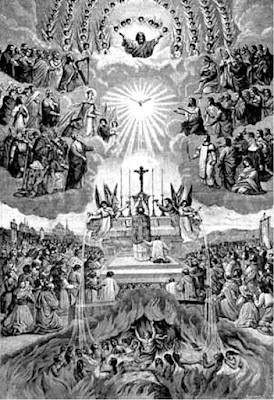In my last post I discussed how important it is for us to not allow the culture to dictate the terms of our conversations about life and other important issues. My point was that we have a beautiful and very consistent view of the world that needs to be proclaimed! Unfortunately, because we allow the culture to dictate the terms of the conversation, our side of that conversation too often comes off as things we are against.
About 17 years ago I had a cyst reappear on my shoulder. Because I lived in a parish where I didn’t have family or close friends nearby, I asked a nurse who was on my finance council if she would mind repacking my shoulder with gauze every other day for the two weeks the doctor prescribed. I was so grateful for her positive response. That time, every other day, gave us an opportunity to talk, and we started talking about medical ethics (a subject that still attracts my attention and study today). She stated the view that the Church seems to throw out opinions and dictates. Why should the Church have anything to say to medical professionals about medicine? Thus began a conversation of several days in which she came to an appreciation of where the Church’s view and teaching comes from.
I relate this story because our consistent view of human life means that some things are inconsistent with a vision grounded in the dignity of the human person. And so, I thought it might be important to enumerate these things without explaining them (which would take more than several weeks’ worth of articles). If you have any questions about the things on this list, I'm sure your pastor or any other priest would be most happy to have a conversation with you, explaining what the Church’s understanding of the issues are.
Things which are inconsistent with our understanding that God is the Creator and Lord of human life include (so, this is not an exhaustive list, just the most current issues): contraception, abortion, euthanasia, vasectomies, tubal ligation, the medically unnecessary amputation of body parts (e.g. arms and legs - yes, that is a thing). Basically, anything that disrupts, disfigures, or otherwise frustrates the normal functioning of the human body, which is otherwise functioning as designed, is something the Church recognizes to be an injury to the dignity of the human person.
That last sentence leaves an awful lot of ground for dialogue; dialogue which would uncover much of the political messaging we have been receiving over the last many decades (never mind the last several months) as a cynical play on our feelings and on our understanding of the suffering of so many in our society.
So, anyone interested in an honest conversation?

